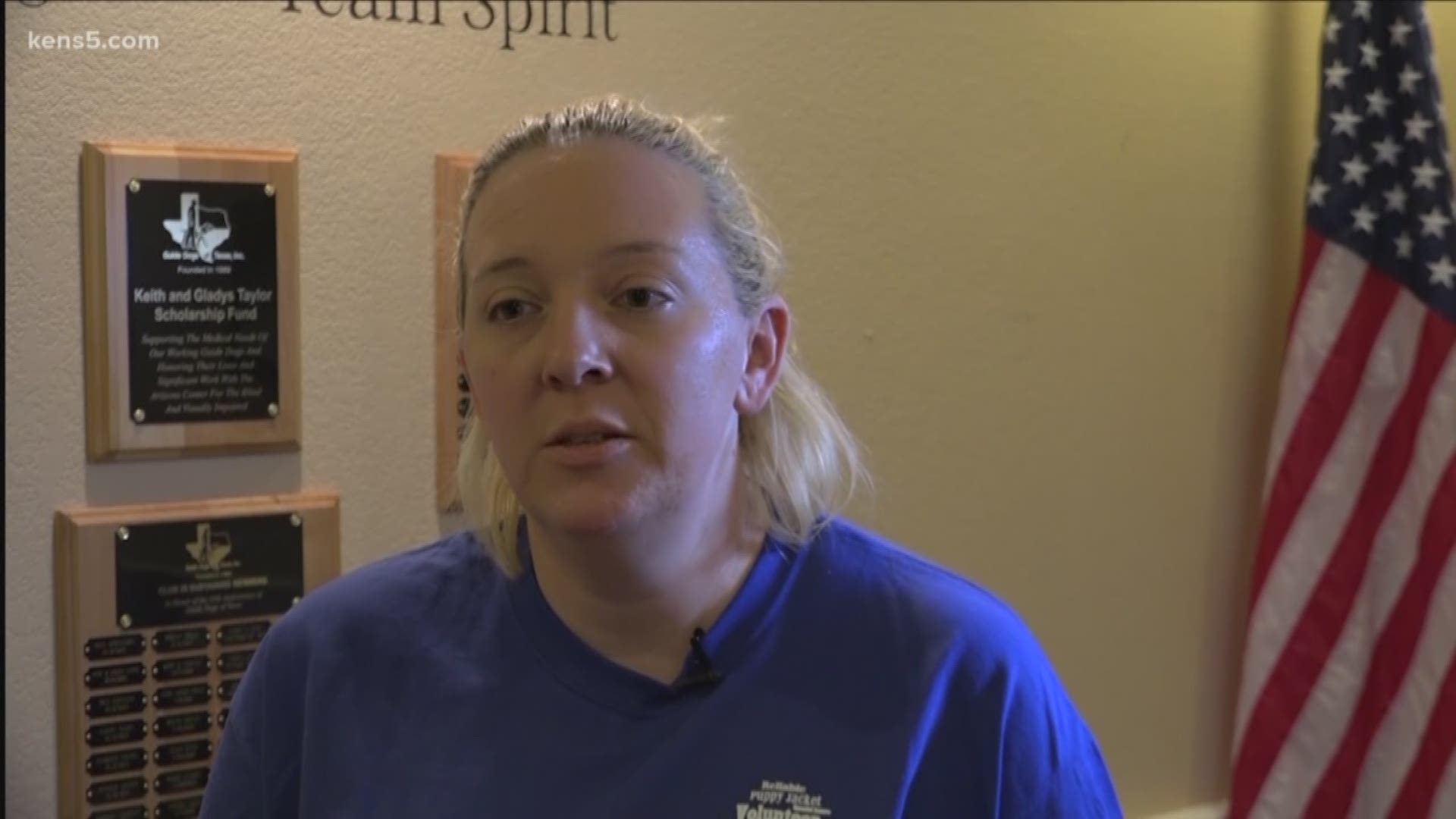They zoom and zip by on busy downtown streets, but scooters and e-bikes are often just dumped anywhere, resulting in an environment that can be hazardous.
Now one group wants to get the word out about the dangers people with disabilities face when maneuvering through what is becoming an increasingly dockless city.
Lou Ann Williams and Atlas, her guide dog, have been together for six years. The reason she has him: an eye condition she’s had since birth.
“I was born prematurely and I have retinopathy of prematurity, so I’ve had a vision problem all my life. It damaged my retinas so it’s not fixable. I’ve had to go through life like everyone else and learn to adapt,” she said.
As if maneuvering through the busy downtown streets wasn’t challenging enough, now Williams has to adjust and get used to the dockless vehicles around town too.
“I didn’t even know there were scooters every place and the thing that made me most nervous was when the scooters...you could tell something was coming up behind you, and my guide dog would get very still and turn his head to see what that noise was on the sidewalk," she said. "I was worried that someone was going to come up, not notice us and run into my guide dog.”
Jamie Massey, the director of training at Guide Dogs of Texas, said she hopes that riders will be more aware of the pedestrians with guide dogs or white canes.
“We first noticed when the dockless scooters came out and the bikes that a lot of the scooters and bikes were being left just kind of laying down in random spots," Massey said. "Some of those places were like wheelchair ramps, just completely blocking the sidewalks on a busy road."
Recently, the city made changes to the dockless vehicle program, including a scooter curfew and enforcing the correct spots for parking.
“That would alleviate the bikes, the scooters being all over the sidewalk at any point. So, if you have that good area where you can dock them that would definitely help with the tripping hazard that they’ve become,” she said.
The Guide Dogs of Texas, Inc., has provided over 230,000 days of guided sight for their clients.
“Each day that each of these dogs are working, it’s providing someone with freedom, mobility and independence so they achieve the things they want to achieve and not be isolated," Massey said. "Each day that these dogs are working it’s incredible. That’s why we count days of guided sight, not just the one single dog."
The organization is a nonprofit that relies on grants, individual donations and volunteers. Anyone who would like to help can contact them at (210)366-4081 or via its website.
“$17 will provide a day of guided sight. So even if it’s a donation or we also run off of volunteers so someone can come down. We always need puppy raisers," Massey said. "We actually have a brood that is due to well puppies. March 3 is her due date, so we are going to have a new litter of puppies, so we will need puppy raisers for those. So if anyone really wants to help one of these dogs go to someone who is blind being a puppy raiser. I can’t tell you how much puppy raisers do for us."

